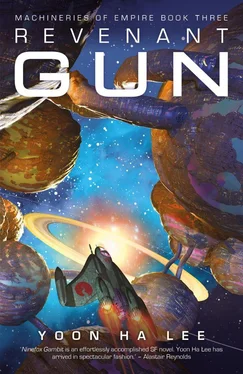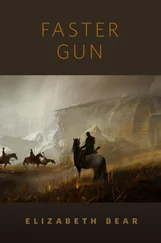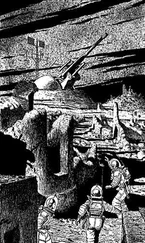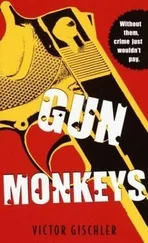“Remove” didn’t sound good. Unfortunately, he’d already screwed up by mentioning the matter in front of Dhanneth, who needed to perceive his leadership as being united.
Huh. How did I know that? More evidence of the years of experience he couldn’t remember?
“That being said,” Kujen murmured, eyelashes lowering as he looked sideways at Dhanneth, “you will have access to staffers, yes. It would be difficult to manage a swarm of this size otherwise. And you should rely on the major for assistance. He is well-versed in these matters.” He returned to the beverage list and made a pleased noise when he spotted something promising. He put in the order. The grid acknowledged in its usual calm voice.
Jedao wanted to talk to Kujen in private before he stepped into any more minefields, but it would be unkind to send Dhanneth away unfed. “Do you know why you’re here?” he asked Dhanneth, meaning besides the obvious .
Dhanneth’s brows lowered. “I’m awaiting your orders, sir, like everyone else.”
“Two things,” Jedao said. Might as well get this over with. “They’re related. I’m going to need advice on how the Kel do things. This is because my memory is damaged.”
Kujen’s head came up, but he didn’t intervene.
“As you say, sir,” Dhanneth said. His shoulders had tensed, but the motion was subtle. If Jedao hadn’t been watching for a reaction, he might have missed it.
Jedao had expected more of a reaction than that. He couldn’t imagine that the Kel usually went around with brain-damaged generals. “And another thing,” he said. Maybe this question would tell him something more useful. “These gloves seem to hold some significance to you. Tell me about them.”
He hadn’t expected such a strong response to a question about a regulation item of clothing. You’d think he’d asked Dhanneth to kill himself with a wooden spoon. Dhanneth looked at him, then at Kujen, then at him again.
“For love of stars above,” Kujen said to Jedao, “I didn’t expect you to be so direct about it.”
“What the hell is it about these gloves anyway?” Jedao demanded.
“You might as well tell him,” Kujen said to Dhanneth. His cynical tone suggested he’d known this would happen. What was he trying to prove?
Dhanneth squared his shoulders. “Sir,” he said quietly, “stop me when I’m saying things you already know. You’re the last person to wear that style of glove in the Kel military. Before—before you died.”
“I feel alive, thanks,” Jedao said to cover his discomfort. “Unless I’m a clone?”
“No,” Kujen said. “Plenty of parents choose clones or clone-mods to produce children. But genetics isn’t prophecy, and you wouldn’t have the original’s personality and skills. After you died, I was able to revive you and reinject you with the memories that Cheris hadn’t purloined. That’s all.”
So much for that theory. Jedao said, “I thought all seconded personnel—” Something from the Kel military code flickered at the edge of his consciousness, then evaporated before he could bring it into focus.
Dhanneth hesitated, then said, “Seconded personnel adopted gray gloves after what you did, sir. Because of the connotations.”
Suddenly Jedao suspected that he was going to enjoy this discussion even less than Dhanneth was. “Say it straight out. What did I do?”
“Hellspin Fortress,” Dhanneth said, as if that explained everything.
“Why, what happened with the Lanterners?” Oh no. “They went heretic at a bad time?” But what did that have to do with him? Maybe he’d been sent to fight them? “I lost humiliatingly against them?” Except hadn’t Kujen said—
Dhanneth closed his eyes. “You don’t know?”
“Let me,” Kujen said impatiently. “The Lanterners demanded autonomy. Kel Command assigned you to put them in their place. That eight-to-one battle? That was the Battle of Candle Arc, against the Lanterners. After that you harried them to their last stronghold, Hellspin Fortress. But Kel Command had pushed you too hard, and you snapped. You took out the Lanterners, all right, but you also blew up your own swarm.”
Jedao stared at him. “I what?” Don’t get distracted. Get the facts. The way Dhanneth’s jaw was set, he believed the story, incredible as it sounded. That worried Jedao. “How many died?”
“A million people altogether,” Kujen said. “Granted, we don’t care about the Lanterners”—Jedao was disturbed by the cavalier way Kujen said this, heretics or not—“but it makes the number easier to remember.”
The next question was going to be even uglier. “When was this?” He should have asked this earlier, when he learned the high calendar had destabilized.
“Four hundred and eight years ago.”
The edges of Jedao’s vision grayed. “Listen,” he said, “you can vivisect me for speaking out of turn, but you’re fucked in the head if you think the correct response to a psychotic mass-murdering traitor is to bring him back from the dead and hand him another army .”
“My options were limited,” Kujen said calmly. “I don’t just need someone good, I need someone spectacular. And you were available.”
Kujen didn’t get it. Granted, no one expected a hexarch to care about petty moral qualms. Jedao tried again. “I cannot imagine that Kel Command was stupid enough to knowingly field a general whom they suspected of being one million deaths’ worth of unstable. Were there any warning signs?”
His voice was shaking. He didn’t want to believe any of this. For that matter, he wasn’t sure what he wanted Kujen to say in response. Was it better to have a definite sign that you were about to lose your mind and slaughter people, or was it better to be taken by surprise? Of course, he imagined the people about to be targeted would appreciate a warning.
“Hexarch,” Dhanneth said after casting Jedao a worried look, “perhaps we could discuss this after breakfast.”
Jedao was impressed. In Dhanneth’s position, he wouldn’t have wanted to draw attention to himself.
“No, we’d better get it out of the way,” Kujen said. “There were no signs. You were an exemplary officer. We think it was the stress, but no one knows for sure. And with the holes in your memory, you can’t tell us yourself.”
Abruptly, Jedao hauled himself to his feet and walked to the other side of the room. He was tempted to punch the wall, but Kujen wouldn’t appreciate that, and it would upset Dhanneth, who had done nothing wrong. The fact that he was Dhanneth’s superior was ludicrous, but that wasn’t Dhanneth’s fault either.
On the other hand, Jedao now had some idea why Dhanneth was both hostile and trying to suppress signs of it. Because he’d been assigned as the aide to a mass murderer. Dhanneth couldn’t possibly have wanted the job.
Kujen approached him slowly, as if he expected him to bolt. “Jedao.”
Jedao didn’t know what to say, so he said nothing.
“Jedao,” Kujen said, “you’re not to blame. You don’t remember it anyway.”
“If I did it,” Jedao said, “then I’m responsible whether or not I remember it. I assume that—” Actually. “Did I die in battle, or was I executed, or did I choke on a fishbone?”
“Executed.”
You’d think he would remember some of this, any of this. Jedao closed his eyes. Fragments came back to him: wrestling with Ruo, and the sharp, sour smell of the other cadet’s sweat; disassembling a sniper rifle while the instructor shouted in his ear; a silent room steeped in darkness. But the execution? He had no idea.
“Talk to me, Jedao.”
“Aren’t you worried that I’ll strangle you?” He hadn’t meant for that to slip out.
Читать дальше












